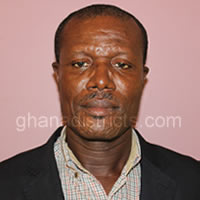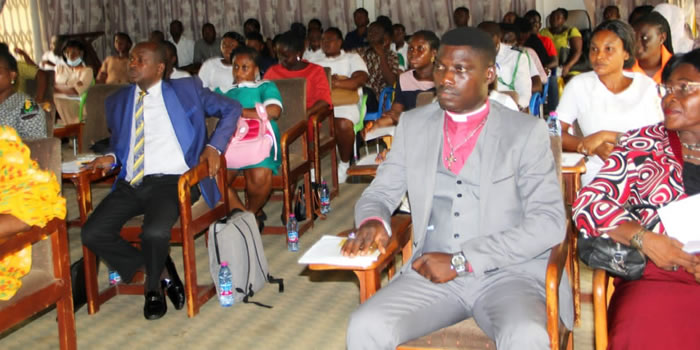

The Obuasi Municipality falls under Fomena Traditional Council (paramountcy), This traditional authority ies has specific stool lands under its jurisdiction. These stool lands are under the care of sub chiefs’ unspooled by the paramount chief.
The Municipality is cosmopolitan; with almost every major ethnic group present. The Akan is the largest ethnic group with 75.2 percent of the Municipality’s population followed by the Mole Dagbani, 13.9 percent, then Ewe, 3.9 percent and the least being the Guans with 0.6 percent.
There are three main religious groupings in the Municipality, namely Christianity, Islam and Traditional Religion.
According to 2010 Population and Housing Census Report Christianity dominates with 81.7 percent followed by Islam with 13.3 percent and the Traditional Religion with 0.2 percent. Among the Christians the Pentecostal/ Charismatic have a following of 33.2 percent Protestants, 19.7 percent, catholic, 14 percent and other Christians, 14.8 percent.
The area is predominantly occupied by the Akans who cherish funeral celebrations which are usually elaborately done when it occurs. Funerals are usually celebrated on Saturdays and Sundays are used for thanks giving service. Naming ceremonies unlike funerals are not popular in this area.
Ethnicity
Ethnicity refers to the ethnic group that a person belonged to. This information is collected only from Ghanaians by birth and Ghanaians with dual nationality. The classification of ethnic groups in Ghana is that officially provided by the Bureau of Ghana Languages and which has been in use since the 1960 census.
Birthplace
The birthplace of a person refers to the locality of usual residence of the mother at the time of birth. If after delivery a mother stayed outside her locality of usual residence for six months or more or had the intention of staying in the new place for six or more months, then the actual town/village of physical birth becomes the birthplace of the child.
Duration of Residence
Duration of residence refers to the number of years a person has lived in a particular place. This question is only asked of persons not born in the place where enumeration took place. Breaks in duration of residence lasting less than 12 months are disregarded. The duration of residence of persons who made multiple movements of one (1) year or more is assumed to be the number of years lived in the locality (town or village) since the last movement.
Religion
Religion refers to the individual’s religious affiliation as reported by the respondent, irrespective of the religion of the household head or the head’s spouse or the name of the person. No attempt was made to find out if respondents actually practiced the faith they professed.
Marital Status
Marital status refers to the respondent’s marital status as at Census Night. The question on marital status was asked only of persons 12 years and older. The selection of the age limit of 12 years was based on the average age at menarche and also on the practice in some parts of the country where girls as young as 12 years old could be given in marriage.
Date Created : 11/27/2017 6:35:32 AM













 facebook
facebook
 twitter
twitter
 Youtube
Youtube
 +233 593 831 280
+233 593 831 280 0800 430 430
0800 430 430 GPS: GE-231-4383
GPS: GE-231-4383 info@ghanadistricts.com
info@ghanadistricts.com Box GP1044, Accra, Ghana
Box GP1044, Accra, Ghana